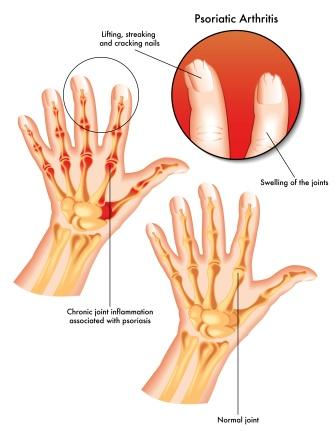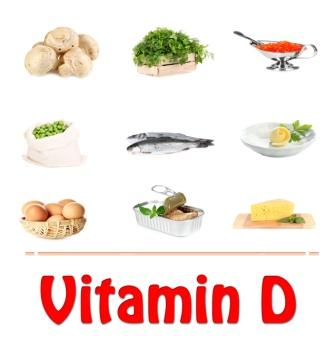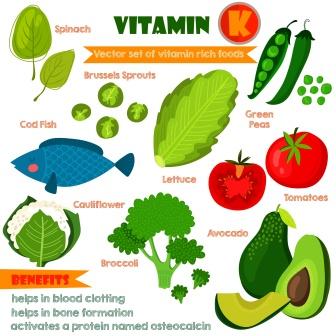Psoriatic Arthritis: Useful Home Remedies, Diet, Yoga, Lifestyle Tips
Article by Dr Raghuram Y.S. MD (Ay)
Table of Contents
Prevention measures
Psoriatic arthritis doesn’t leave a clue before it gets manifest, especially the type which develops with the absence of classical psoriasis. If the psoriatic arthritis develops after the manifestation of psoriasis, we would have had time to prevent its complication which could come in the form of ‘psoriatic arthritis’ but the problem is with that type of psoriatic arthritis which develops without having the skin psoriasis on its backdrop.

You can soothe your psoriatic arthritis symptoms or prevent them before they get manifested by skilfully following a combo of exercise, medicine and other treatments
Exercise – is the key for keeping the joints in good condition. You can indulge in any type of activities which are within your comfortable zone and fulfil your format of exercising. It may include walking, swimming, biking etc activities. Below said are the benefits:
- Arthritis symptoms get eased
- Movements improve
- Joints and muscles get stronger and flexible
- Balances your weight, which takes off the pressure on your joints
- Good for heart and improves circulation and oxygenation
- Good for mind, boosts mood
- Energizes you
If you cannot work out on your own, you can take the help of physical therapists or trainers. Make sure to warm up before exercising. This will ease your muscles and make it easy for you to exercise.
Water therapy – Water therapy is the best option. It is also called as aqua therapy or hydrotherapy. Since this exercise is done in the pool, the water takes some of the weight off your limbs and joints. This will put you in comfort to do the things in an easy way.
Active day – Keep yourself active throughout the day. Try different activities like gardening, walking with your pet, do some household works like carpentry or engage yourself in some fine activities like painting etc, play with kids and stretch yourself to a limit without hurting self.
Hot and cold – Use moist heat on your joints and aching muscles. They relieve pain and stiffness and ease movements. For this you can use a warm towel, hot pack or take a warm water bath or shower etc. When there is swelling think about cold. Coldness can cut back your swelling and ease pain. You can use ice bag or frozen vegetables wrapped in a towel.
Correct your postures – Do things without stressing your joints. You need not sacrifice the activities you love to do, but change the method of doing them, in a way which your activity fits into you and you fit into your activity with ease. The way you walk, sit, stand or hold things can help. Change your position at work spot, home and any activity you do throughout the day. Sit and stand up straight. Do not arch your back. Good postures always help you feel better.
Pace yourself – Switch and shift between heavy, hard or repetitive tasks and light or easy tasks. Make sure you take breaks in between your activities and tasks to keep yourself at ease and comfort.
Be kind to your joints – Put as little stress as possible on the joints. Try using bigger and stronger joints whenever you can instead of smaller joints. Skilful use of joints in hard and mild activities will keep a balance. For example, wear a shoulder bag rather than a handheld purse. Here you are using your big and strong joint i.e. shoulder instead of small joints of your fingers.
Get an assist – Use helpful devices like canes, grab bars, extra-thick pens, luggage carts or sit or stand stools. These things will make your life and day to day activities easier. Before that make sure you take an opinion of occupational specialist.
Keep in touch with your doctor – it is always wise to keep the contacts of your doctor accessible. Keep your doctor intimated about everything you do. When things flare up or when any new symptoms develop or worsen, tell your doctor immediately. Don’t experiment too much which might lead to joint damage.
Reduce sugar consumption – reducing sugar in your diet might help in easing the flare-ups in psoriatic arthritis. According to CDC sugar contributes to weight gain and can increase inflammation also. More weight puts more pressure on your joints and increases the pain. You can use strawberries instead. Strawberries are rich in fibre and is found to reduce blood levels of C-reactive protein (CRP), one of the markers of inflammation (CRP rises when inflammation levels are at their peak), according to a study in the ‘Journal of the American College of Nutrition’.
Avoid Red meat – Red meat is found to increase your cholesterol levels and also might increase your joint pain. Instead use plenty of vegetables and fruits. When you eat meat, limit it to leaner meat such as poultry, fish, pork etc. Make sure you keep the measure of intake less than 3 ounces or about the size of the palm of your hand.
Dairy products – We have a famous myth that dairy products aggravate arthritis symptoms. Studies by the University of Auckland in New Zealand and those published in Arthritis and Rheumatism points that dairy doesn’t increase the inflammation associated with arthritis. Psoriatic arthritis patients should take low-fat milk, yoghurt and cheese. But some people may have intolerances to casein found in dairy. This may lead to stomach problems. These people may keep away. On the other part, calcium in milk is really good for bones.
Avoid saturated fats – Saturated fats can increase your body weight and enhance your cholesterol levels beyond limits. Go rare or avoid fast foods, baked foods and fat-laden salty snacks. Choose unsaturated fats such as olive, safflower, grapeseed, avocado and walnut oils for cooking. These are good fats. They act as natural anti-inflammatory agents and good to taste.
Soda – Refined sugar in soda and other foods may increase inflammation. High dietary sugar intake leads to high insulin levels in bloodstream,, which increases inflammation in the body. Low sugar in the diet results in lower insulin levels and therefore lower inflammation in the body. Too much sugar on the other hand leads to weight gain which can further insert pressure on the already aching joints and increase your risk for heart disease and stroke.
Home remedies
Home Remedies against Psoriatic Arthritis (PsA) –
Manage your diet and weight – Some foods trigger inflammatory response. So it is better to know your foods and which are worsening your symptoms. A diet rich in vegetables, fruit and whole wheat and gluten-free diet can reduce inflammation. Healthy diet also can maintain healthy weight and thus reduce the burden on the joints. This in turn will ease up the pain and stiffness from the joints.
Colourful anti-oxidant foods – Colourful foods which are enriched with antioxidant properties ease the stiffness, swelling and tenderness associated with psoriatic arthritis. Red skinned apples and onions are anti-oxidant rich foods. Foods rich in Vitamins A and C are good for joints, take orange coloured fruits and vegetables to maintain your health and ease your joints.
Salmon – is highly rich in anti-inflammatory omega-3 fatty acids. Salmon and other fishes like albacore, tuna, mackerel, herring and lake trout are recommended to be taken at least twice a week as a protection towards heart disease (American Heart Association). Having psoriatic arthritis increases your risk of heart attack and stroke. Thus these fishes are good.
Whole grains – like brown rice and wild rice, whole wheat pasta, barley, quinoa, bulgur etc are rich in fiber. They help in maintaining blood cholesterol levels. High blood cholesterol is a major risk factor for heart disease and having psoriatic arthritis may increase that risk further.
Garlic – is enriched with potent anti-inflammatory phytonutrients (Academy of Nutrition and Dietetics)
Darkest eatables – It is advised to choose the darkest and richest colours when it comes to choosing fruits and vegetables as their dark colours indicate rich nutrients which also have anti-inflammatory properties.
Cherries and Berries – Blueberries, other berries and cherries contain the phytonutrients called anthocyanins. These ingredients help in checking inflammation. Tart Cherry has the highest concentration of antioxidants and anti-inflammatory principles.
Joint Care – Using heating pads or taking warm water bath can loosen up your joints and muscles and ease pain. Use ice cubes or cold pack on your joints and muscles to relieve pain. Use your entire hand rather than just some fingers to push doors and lift heavier objects. Use assistive devices to open bottles and jars thus avoiding straining your fingers and hands.
Regular exercises –
- Exercises strengthen your muscles and increase flexibility.
- It also maintains a healthy weight and thus reduces stress on joints and muscles.
- If exercising is hurting, try aqua exercises or exercising in pools.
- If you don’t get time for regular daily workouts, take short breaks of 10-15 minutes to stretch in between your work and perform some range of motion exercises.
- Take help of your doctor, physical therapist or trainer for exercise recommendations.
- Start and practice with gentle and low-impact exercises which improve your symptoms and movements like walking, swimming, Yoga, TaiChi etc.
Regular Rest and Relaxation –
- Try to have a good sleep at night. It relieves fatigue.
- Try to maintain the time of sleep to schedule good sleep. Get up at the same time at morning.
- Take a soothing warm water shower before retiring to bed.
- Make some time to rest and relax in between during busy days.
- Put your feet up, read or listen to your favourite music for few minutes.
Turmeric – eases the symptoms of psoriatic arthritis. Turmeric has an effect on reducing inflammatory proteins. Studies have shown that the effects of only turmeric on PsA are extremely mild and difficult to measure. Curcumin, the active ingredient in turmeric also has the ability to alter gene expression. It has ability to alter TNF cytokine expression which is the reason why turmeric helps in minimizing psoriasis and psoriatic arthritis flares. It can be taken in the form of concentrated pill or supplement form or in your curries. FDA considers 1.5 to 3.0 grams of turmeric per day to be safe.
Kale – is one among the best anti-inflammatory nutritional vegetables. It is rich in vitamins A, C and K. Kale contains lot of flavonoids with a variety of antioxidant and anti-inflammatory effects. According to study, Kale may actually inhibit tumour necrosis factor-alpha or TNF-alpha, the same inflammatory proteins targeted by many of the biologic medications for psoriatic arthritis.
Fish oil – reduces the proteins that are involved in inflammation. It should be taken in a quantity of 2000 to 3000 mg per day (research).
Studies have shown that Eskimo populations have a lower incidence of both psoriatic arthritis and rheumatoid arthritis than other groups. Genetics probably play a role. It is also possible that a diet high in eicosapentaenoic acid or fish oil may help too.

Omega-3 fatty acids – fish oils are rich in these fatty acids. Studies have shown that it is useful in reducing inflammation and stiffness of joints associated with inflammatory arthritis including PsA. The body converts these fatty acids into anti-inflammatory chemicals. Healthy fish oils are found in salmon, mackerel, tuna, herring, halibut and cod. Fish oils are also available as dietary supplements.
Read related: Psoriatic Arthritis: Causes, Symptoms, Diagnosis, Epidemiology, Treatment
Hands on treatments –
Massage may loosen up muscles, ease pain and stiffness, help you relax your joints.Massages can be prevailed at spas and clinics or through a visiting massage therapist at your own home. Acupuncture and acupressure may also ease your pain.
Acupuncture – has provided pain relief but the results are mixed. It has been observed that better results have been reported for isolated areas like knee arthritis.
Willow Bark – also referred as ‘herbal aspirin’, it contains salicin a chemical similar to aspirin (acetylsalicylic acid). A 2001 study found that this medicine equivalent to a dose of 240 mg of salicin a day relieved pain better than a placebo in a group of 78 patients with osteoarthritis. It is possible that the effects could extend to people with PsA also.
Capsaicin – is an ingredient of chilli peppers. Creams and ointments containing this capsaicin block the nerve endings that transmit pain. The creams reduce pain, inflammation, redness and scaling associated with psoriatic arthritis (Research). Some people may feel burning sensation; in that case it needs to be discontinued. Cayenne Pepper consists of Capsaicin which eases arthritis in some people.
Probiotics – Research has shown that the people with psoriatic arthritis had lower gut bacterial diversity than healthy people. probiotics are friendly bacteria that can restore the good-bad bacteria balance and are found in foods such as yogurt as well as in supplement form. Few studies have shown the anti-inflammatory effects of probiotics beyond the gut, including diseases such as psoriasis and psoriatic arthritis.
Boswellia – has shown to have an anti-inflammatory effect on some conditions including arthritis (study). In pill form, dosage is 30-400 mg 3 times per day.
Boxberry – is also called Eastern teaberry and wintergreen. An infusion of this plant has been long used by Native Americans as an effective anti-rheumatic medicine. Studies also have shown its anti-inflammatory properties (leaf extracts).
Oil of Wintergreen – As topical agents, oils of wintergreen, menthol, eucalyptus and camphor are called counter-irritants. They block the unpleasant sensations at the nerve endings and ease pain. Studies have shown its anti-inflammatory action on rats.

Vitamin D – Vitamin D deficiencies are found in few patients with Psoriatic arthritis (2011 study). The same study showed that vitamin D levels didn’t seem to affect the disease activity very much. This shows that vitamin D may be useful in PsA but more research needs to be done to find out whether it is really beneficial and if it does make an impact.

Vitamin K – is generally found in green, leafy vegetables such as kale, spinach, and broccoli, canola and olive oils, is really good for the health of our joints. Its effects have not been thoroughly studied on PsA. One study found that low vitamin K is associated with more severe osteoarthritis. Though it is not sure, the leafy vegetables can be consumed because they are good for health and do no harm. If the vitamin K in them helps, it comes handy.
L-carnitine – Some studies have shown it to benefit psoriatic arthritis. It is derived from amino acid and is involved in fat metabolism. It is found in almost cells. Healthy people generally produce enough on their own.
Vitamin B12 – Its deficiency has been found in people having psoriatic arthritis. But it doesn’t seem to be a primary treatment option. It is found in yoghurt, fortified breakfast cereals, trout and clams.
Specific home remedies for Psoriasis –
Aloe Vera (for use in psoriasis) – Gel from aloe plant should be applied 2-3 times in a day. Research shows that it helps to reduce redness and scaling associated with psoriasis. Creams with 0.5% aloe can also help.
Apple Cider Vinegar (for use in psoriasis) – relieves itching related to psoriasis, especially scalp itching. It should be diluted with equal quantity of water to prevent burning sensation caused by vinegar. Rinse the skin once the solution has dried. Don’t use when having open wounds.
Dead Sea Salts (for use in psoriasis) – or Epsom salts when added to your hot or warm water bath and soaked for 15 minutes may remove scales and ease itching. Make sure to apply moisturizer to your skin as soon as you get out of the tub.
Oats (for use in psoriasis) – are nature’s best skin soothers. Applying oat paste or taking bath in oats relieves their itchy skin and reduces redness.
Tea Tree Oil (for use in psoriasis) – shampoos having tea tree oil has shown to relieve scalp psoriasis.
Mahonia Aquifolium (Oregon Grape) – powerful antimicrobial herb that plays a role in immune response. Applying a cream containing 10% mahonia is effective in treating mild to moderate psoriasis.
Yoga
Yoga for Psoriatic Arthritis –
Yoga helps people with Psoriatic Arthritis.
Related reading:
https://www.psoriasis.org/blog/yoga-and-psoriatic-arthritis-how-it-helps
Below mentioned poses are useful in PsA:
Balasana (Child pose)
Uttanasana (Forward fold Yoga Pose)
Bhujangasana (Cobra pose)
Utthita Parshvakonasana (Extended Side Angle Pose)
Ardhamatsyendrasana (Seated Spinal Twist Pose)
Virabhadrasana (Warrior pose)
Click to Consult Dr Raghuram Y.S. MD (Ayu)









One comment
R.Rajan
ya a useful message thanks